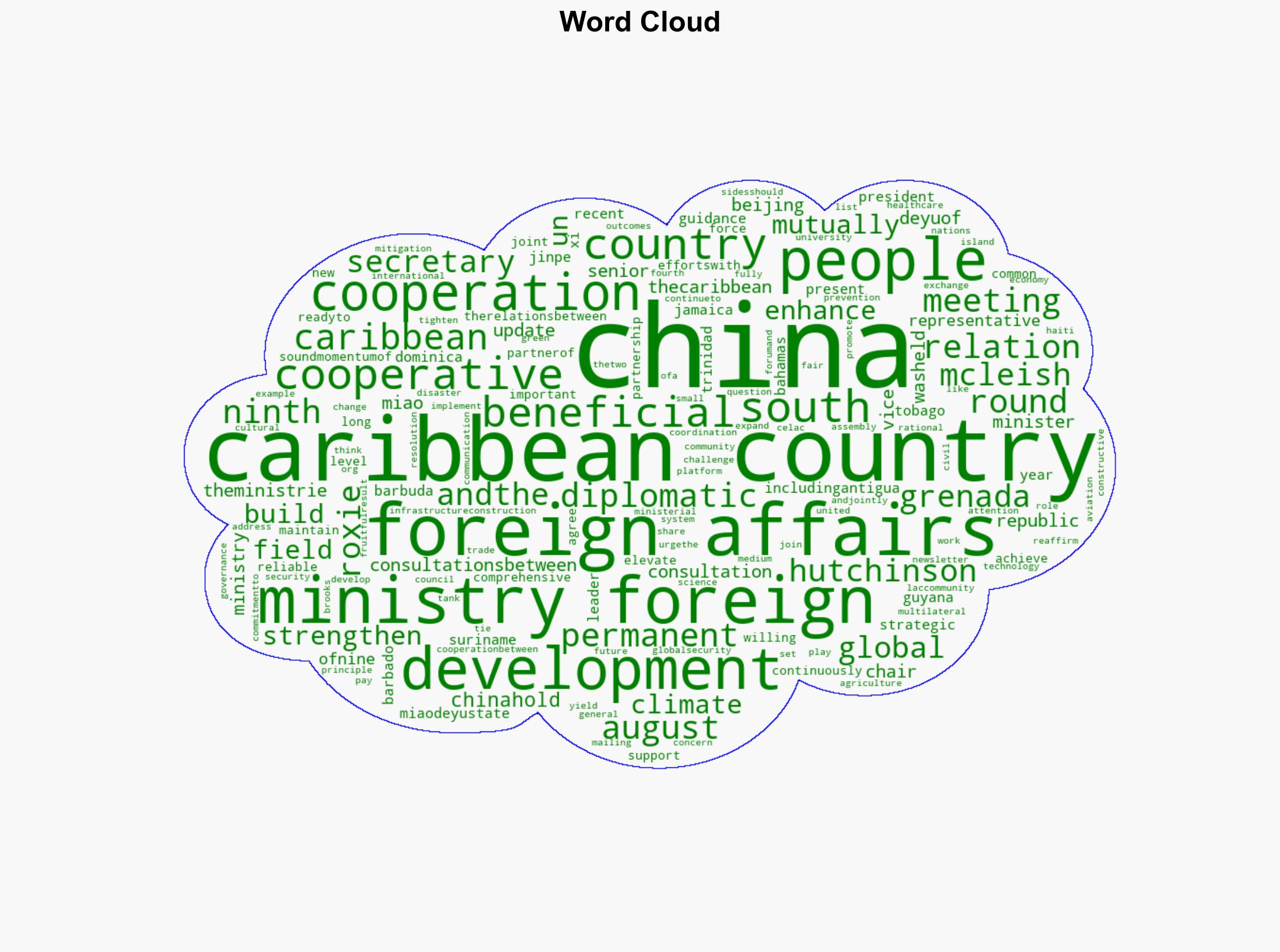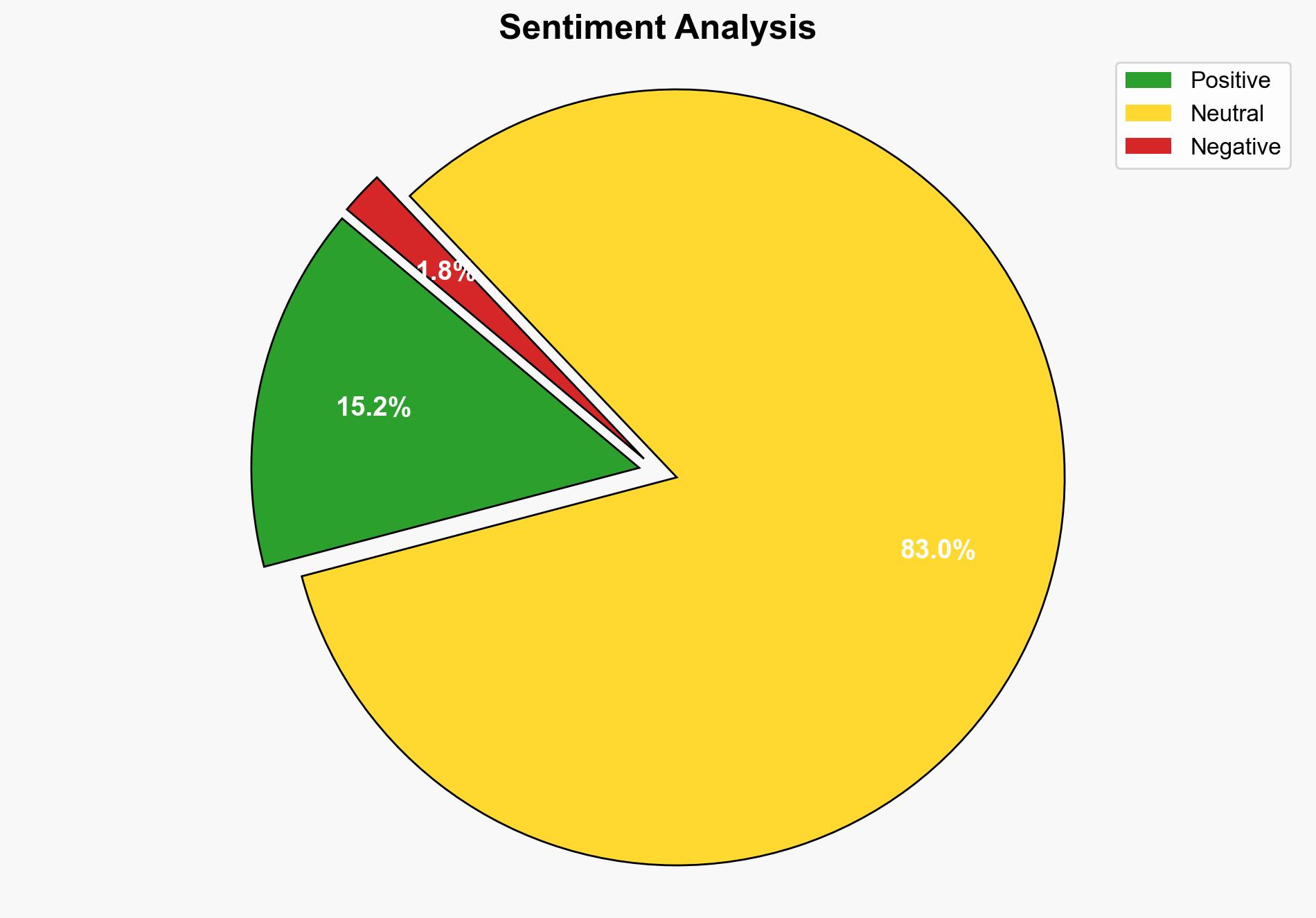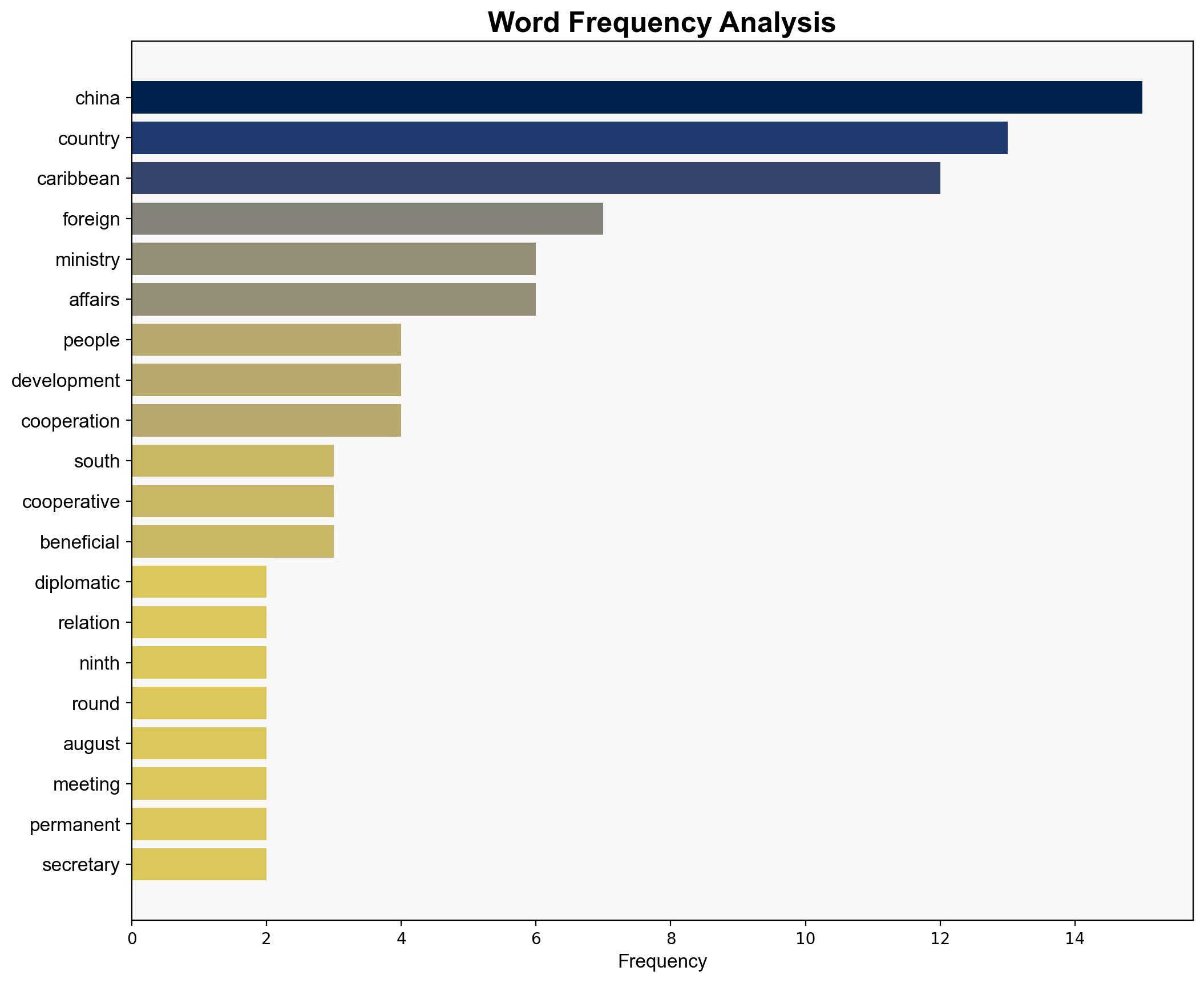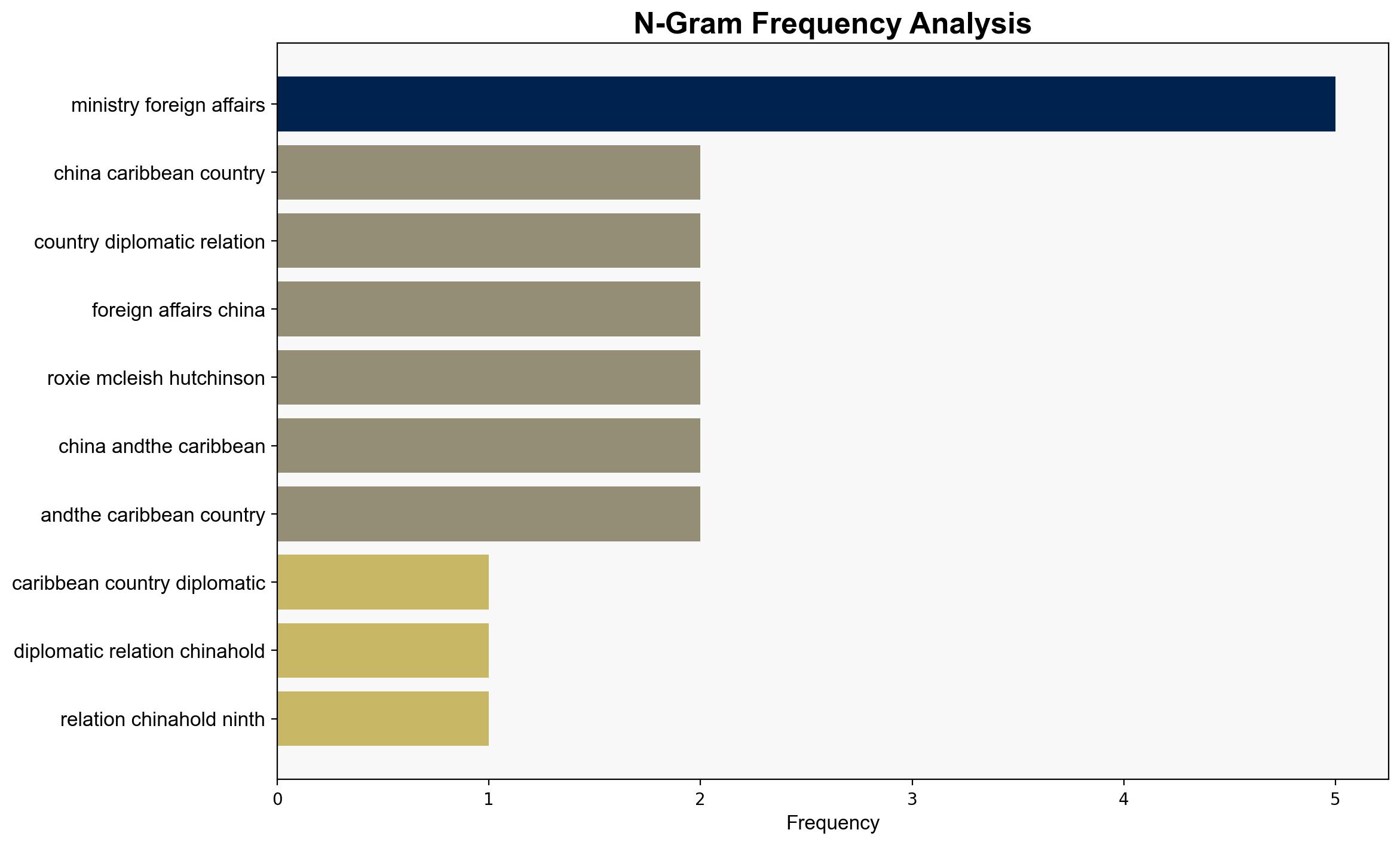China and the Caribbean Countries Having Diplomatic Relations with China Hold the Ninth Round of Consultations between the Ministries of Foreign Affairs – Globalsecurity.org
Published on: 2025-08-18
Intelligence Report: China and the Caribbean Countries Having Diplomatic Relations with China Hold the Ninth Round of Consultations between the Ministries of Foreign Affairs – Globalsecurity.org
1. BLUF (Bottom Line Up Front)
China is actively working to strengthen its diplomatic and cooperative ties with Caribbean countries, leveraging these relationships to enhance its influence in the Global South. The most supported hypothesis is that China aims to create a strategic alliance with these nations to counterbalance Western influence. Confidence Level: Moderate. Recommended action includes monitoring the development of these relationships and assessing their impact on regional stability and global power dynamics.
2. Competing Hypotheses
1. **China is seeking to establish a strategic alliance with Caribbean countries to enhance its influence in the Global South and counterbalance Western powers.** This hypothesis is supported by China’s emphasis on mutual cooperation, development projects, and strategic guidance from President Xi Jinping, as well as the focus on South-South cooperation.
2. **China’s engagement with Caribbean countries is primarily economically motivated, aiming to secure resources and markets for Chinese goods and services.** This hypothesis considers the emphasis on economic cooperation, trade, and infrastructure development as indicators of economic interests driving the relationship.
Using the Analysis of Competing Hypotheses (ACH) 2.0, the first hypothesis is better supported due to the strategic language used in the consultations and the broader geopolitical context of China’s foreign policy.
3. Key Assumptions and Red Flags
– **Assumptions**: It is assumed that Caribbean countries are willing partners in China’s strategic goals and that these relationships are mutually beneficial.
– **Red Flags**: The absence of explicit mention of any dissent or resistance from Caribbean countries could indicate selective reporting. The potential for economic dependency on China is not addressed.
– **Blind Spots**: The report lacks detailed information on the specific projects or agreements resulting from these consultations, which could provide more insight into the true nature of the cooperation.
4. Implications and Strategic Risks
– **Economic**: Increased Chinese investment in the Caribbean could lead to economic dependency, reducing the region’s autonomy.
– **Geopolitical**: Strengthened China-Caribbean ties could shift regional alliances, potentially isolating Western influence and altering the balance of power in the Americas.
– **Cyber and Psychological**: Enhanced cooperation may include technology transfers, raising cybersecurity concerns and potential influence over public opinion through media and cultural exchanges.
5. Recommendations and Outlook
- Monitor the implementation of agreements from these consultations to assess their impact on regional stability.
- Engage with Caribbean countries to offer alternative partnerships that promote balanced development and autonomy.
- Scenario-based projections:
- Best: China and Caribbean countries develop a balanced partnership that enhances regional stability and development.
- Worst: Economic dependency leads to political influence, destabilizing the region and reducing Western influence.
- Most Likely: Incremental strengthening of ties with gradual shifts in regional alliances.
6. Key Individuals and Entities
– Miao Deyu
– Roxie McLeish Hutchinson
– President Xi Jinping
7. Thematic Tags
national security threats, geopolitical strategy, regional influence, economic cooperation





